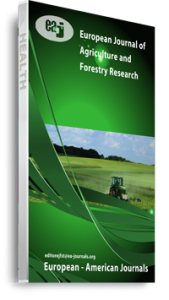The study was carried out in Benue State, Nigeria to ascertain the perception of cost sharing as a sustainable funding model in agricultural extension processes among farmers and public extension agents (PEAs). Data were collected using interview schedule/questionnaire and Focus Group Discussion (FGD). Descriptive statistics such as frequency and percentage were used for analyzing the data. A sample of 174 farmers and 42 PEAs were selected for the study using purposive and simple random sampling techniques. Findings of the study indicate that majority of the farmers (62.1%) and all (100%) the public extension agents were males, married, middle aged and had formal education. Majority (56.3%) of the farmers and the PEAs (55.8%) had a high level of awareness on cost sharing. Both farmers (43.0%) and PEAs (42.9%) were of the opinion that cost-sharing is when all stakeholders contribute to facilitate the activities and maintained that it is when benefitting farmers and government pay for extension services. Majority (82.8%) of the farmers perceived a positive impact of cost-sharing on agricultural extension service delivery if adopted, while most (61.9%) of the PEAs were indifferent about the impacts, among others. However, farmers also preferred that cost-sharing should be in the area of input provision (53.4%), while PEAs preferred advisory services (77.5%) as an area of intervention in the implementation of cost-sharing practices. The study recommends that there should be a gradual commencement of the implementation of cost-sharing practice given the high interest demonstrated by farmers as this will help to achieve the objectives of agricultural extension service. Efforts are also highly needed in the area of provision of farm inputs and advisory services to farmers in order to facilitate the adoption of cost-sharing practices.
Keywords: Agricultural Technology, Cost sharing., Farmers, Nigeria, public extension agents

